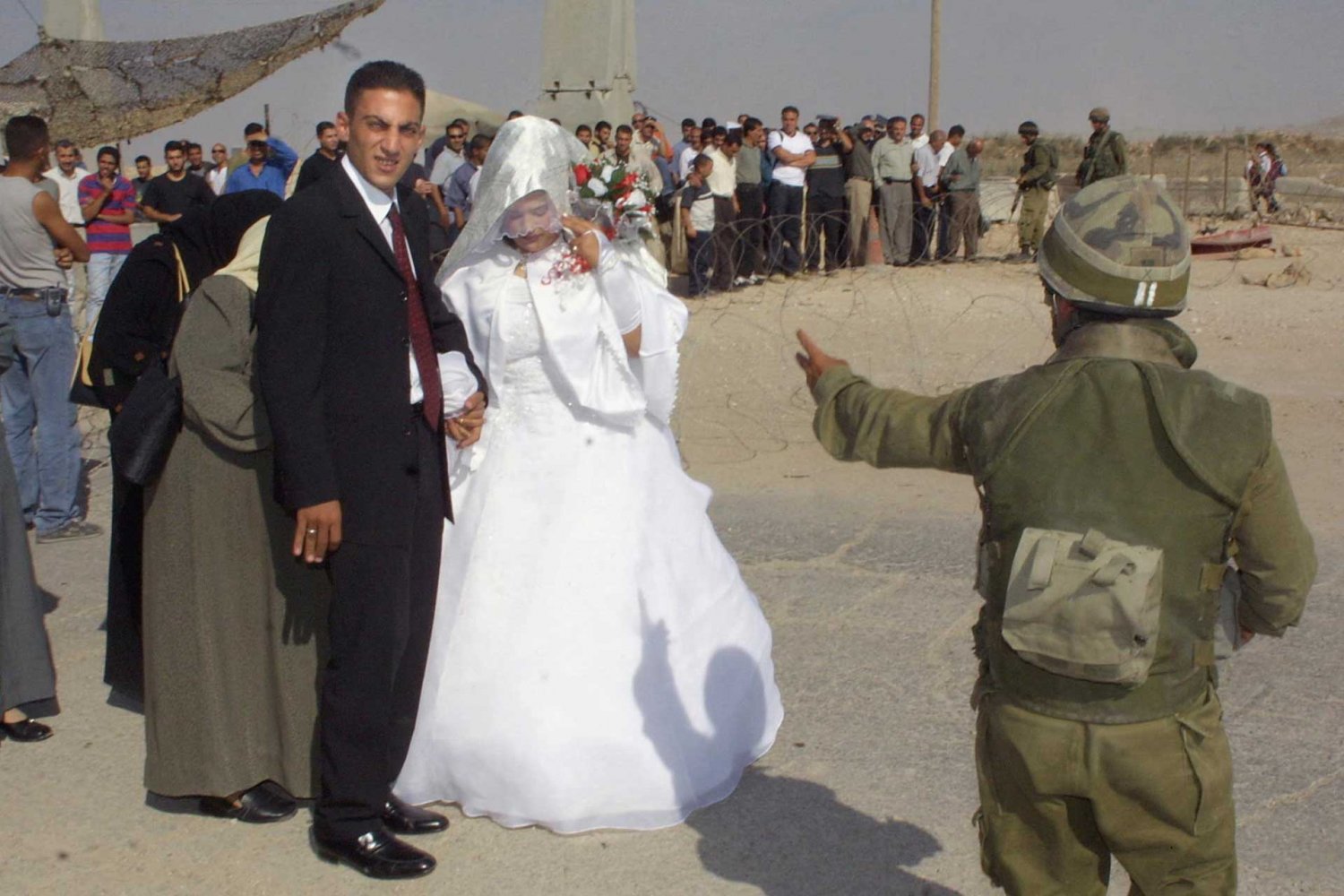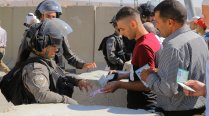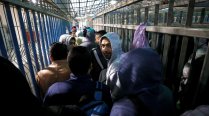“We are from Ramallah, but we had arranged in advance to get permits from the Israeli military that would enable us to pass the checkpoint and enter Jerusalem, and we paid a lot of money for a van to take us there. We were playing music in the van, all happy and joyful to be going to my cousin’s wedding. The Israeli soldiers stopped the van, which was expected, and they asked for our permits. We were relaxed, because we knew we had all the required papers. The soldiers told the driver to pull aside, which surprised us. My mother, the bride’s aunt, was pleading with the soldiers that everything was OK. We were all women in the van, and clearly we were going to a party: We had our hair done up and our party makeup and best dresses on. It had taken us weeks to prepare, and hours to get ready.”
Malak paused, and then resumed: “The solder said we couldn’t go through, but it made no sense. I started complaining and started to speak to the other soldier who was standing further away. After much pleading, explaining, and begging, the soldier in the back pointed his rifle at my mom and the rest of us. ‘Go back, yalla, zoozoo [move], yalla!’ he exclaimed offensively, without looking at any of us in the eye. The other soldier started beating on the car. We were horrified and could not believe what was happening. The driver started driving back, and I would say what followed was a type of silence I had never experienced before. I guess this is what utter shock and disappointment sounds like.
“My mom eventually had to make that call. She told her sister, the bride’s mother, that all 12 of us in the van would not make it—that the soldiers wouldn’t let us through. ‘What do you mean!’ I heard my aunt scream through the phone, and after much argument, I could sense the collective grief among all the people attending the wedding. I later found out that the bride herself cried at some point.
“My memory of the details got a little blocked, because it was complete silence in the van aside from the driver, who kept saying things like, ‘May God not forgive them.’ None of us said anything on the drive back.
“My mother had been on a diet for months in preparation for the wedding. She was so excited that she fit in that dress. Once she got back home, she changed her clothes, removed her makeup, and went to sleep without saying a word. I believe that memory did something to all 12 of us in a way that I cannot really express to this day.”






